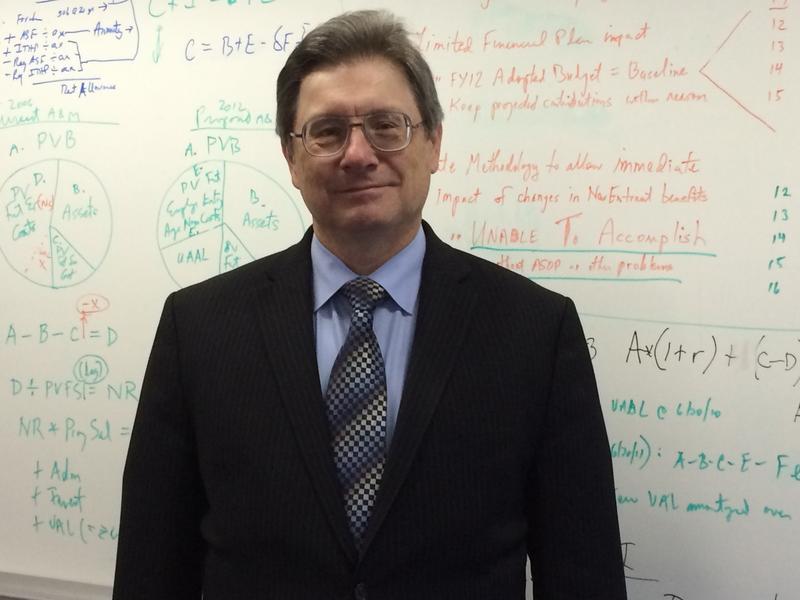
Robert C. North, Jr., 64, has spent the last 24 years as the city's Chief Actuary, responsible for doing the behind-the-scenes calculations that inform how much the city contributes to its five pension funds for retired public workers. Now North himself is retiring on October 31st.
Q: Part of your job is to predict when people retire. So did you see this coming for you?
A: My wife would have liked to see this quite a bit earlier. And it took me a long time to actually decide to retire because I do really enjoy the job. But everybody should retire and new blood should come in now and then.
Q: What does the Chief Actuary do?
A: Among the most important functions is the annual determination of how much the employer [New York City] is to put into the retirement systems. We're trying to project out into the future how long people are expected to live, when they might retire, when they might be disabled and receive a benefit. We also project salaries and inflation to determine what's the level of benefit they will receive.
Q: The New York City pensions have about $150 billion in assets, but they need about $70 billion more to be fully funded. What's the problem?
A: When you have bad investment performance, or people start living a lot longer than expected, you start having deficits. It's like you take on a debt that you didn't maybe expect, but you have to deal with it. All investments funds have been struggling in the last decade due to poor investment performance. The New York City retirement systems are no different.
Q: So what have you done to address that deficit?
A: We've increased employer contributions to the point that we're digging out of a hole. In fact, that's why contributions have risen so much for New York City. I believe the five systems combined had contributions of $700 million in Fiscal Year 2000. And it will be close to $9.6 billion for Fiscal Year 14, I believe.
Q: So that's a big chunk of the city's budget. Meanwhile, critics have called the structure of the city's system, with five separate systems and five different boards, inefficient. And some critics say these public pensions are crowding out funding for other priorities. Do you think the pension system is broken?
A: I believe the current situation for public plans [across the country] is very difficult. But with respect to them being unsustainable or dinosaurs and everybody should be switched to a defined contribution plan I think that's all wrong. These defined benefit plans are amongst the best, most economical delivery systems for providing reasonable benefits for public workers you can have. [In New York City] one can debate whether they're too generous, not too generous. One can debate whether or not the way we fund them has caught up. But if you stick with the plan such as the one I've laid out through 2032 on balance it's going to be just fine.
Q: As an expert on retirement, what will you do next?
A: I've told people I might sleep for two months given that I usually get up at three in the morning to get here by six.
Q: And will you get a city pension?
A: Yes, I am a participant in the New York City Employee Retirement System (NYCERS). Tier 4, Basic Plan.
City officials have not chosen North's replacement. A City Hall spokesperson said the administration and municipal unions have created a joint committee to find a successor.
This interview has been condensed.
